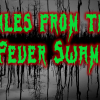Three fraternity men, four “Dreamers” and a University of Colorado history professor were on stage Wednesday night in Boulder’s Dairy Arts Center.
According to the playbill, Motus Theater Company’s Shoebox Stories Live performance aimed to have “leaders from Boulder County organizations step into the shoes of undocumented leaders to amplify their stories.”
It was organized in part by CU’s Center for the American West and its director, Prof. Patty Limerick, who joined three leaders in CU’s fraternity community in reading four autobiographical monologues, written by four “Dreamers” – undocumented youth who came to the United States illegally as children – who appeared on stage to introduce themselves and participate in a dialogue with the audience.
Rita Valente-Quinn, Motus Theater’s producing director, described the performance as a “story holding project, the idea being that you read someone else’s story and that is an act of holding someone else’s story.”
“You kind of see the world through their eyes,” she said.
“From what I’ve seen in our performances,” Valente-Quinn said Boulderites “are very sympathetic to undocumented immigrants.”
Still, she said it wasn’t an entirely welcoming place.
She cited the the Community Foundation of Boulder County’s 2019 report, which found that immigrants are among the least welcome groups in Boulder.
“I think it’s a lot of fear and people wanting to assign blame or causality to a downturn that they are experiencing,” Valente-Quinn said.
The Stories
The event consisted of four very unique stories addressing different elements of the undocumented experience.
Dramatic topics like police profiling and crossing the border with coyotes were broached, but the stories all took a more introspective approach. Issues like depression, anxiety and strained family dynamics were all featured prominently.
One person whose story was read, Kiara Chavez, is also a community development and marketing coordinator for Motus Theater. Thanks to the federal Deferred Action for Childhood Arrivals (DACA) program, the 21-year-old recent CU grad and other students in her situation have been able go to school in the United States without fear of deportation. Now, that program is under judicial review.
“I am a big lover and believer of the fact that this world needs a lot more of that,” Chavez said before Limerick read her story. “I hope you can all fall in love with our stories as well and understand the humanity behind the policies in immigration.”
The 21-year-old recent CU grad’s narrative was centered on her first return to her birthplace and ancestral home, Colima on Mexico’s Pacific coast, to help care for her grandmother about two years ago.
As her plane took off for Mexico, Chavez wrote that she became very emotional.
“I couldn’t stop thinking about what my life had consisted of for the past fifteen years since I’d crossed the border at age four and left my first home,” she said.
It had been a decade-and-a-half since Chavez had seen any of her grandparents, aunts, uncles or cousins whom she missed dearly. These people were a big part of her life when she was young.
“As a child, I didn’t understand why I couldn’t go to Mexico and still, I trusted it was something I simply couldn’t do,” she said. “But now, somehow at age 19 I was returning, and my heart was just about to burst.”
Chavez’s story had a deep emotional impact, but that didn’t at all drown out its rhetorical significance. She highlighted the arbitrary, inflexible nature of American immigration policy and its real-life implications.
“My older sister could go to Mexico,” she said. “She is an American citizen who was born in the United States when my father was working in California.”
Chavez wrote that every few years, her sister “would get on a plane to Mexico and return with sweets from my aunt’s candy store and a collection of photographs of her smiling next to my grandparents, aunts, uncles and the cousins who I had never met.”
Her “sister could enroll in the best private schools in Denver and attend on scholarship. I was smart too, and I tested in as well,” Chavez said, “but I couldn’t go because as an undocumented person, I wasn’t eligible for financial aid and there was no way my parents could afford tuition.”
A Secondary Focus
Undocumented immigrants were certainly the event’s primary focus, but Limerick had another group she wanted to highlight as well.
“I am the lucky soul who conjured up the idea of recruiting fraternity leaders to join me in reading tonight,” Limerick said.
“I live on University Hill,” she said – a student-oriented section of Boulder adjacent to the university campus which is home to most of the city’s Greek life, “and we’ll say that every now and then a football weekend is quite something.”
Limerick spent some time explaining beer die – an innovation on beer pong where participants hurl dice high in the air with the hope of having it bounce off the table and onto the ground without having an opponent catch it.
“If you throw a ping pong ball, there’s a very good chance it’ll go in the direction you intended it to go,” Limerick explained. “But the die, you don’t know. The die has edges and it bounces.”
Limerick said stereotypes have had a detrimental impact on many in the undocumented community.
“On a different scale of intensity,” she said, “there is no fudging the fact that stereotypes of ‘frat boys’ are in circulation on the CU campus and in Boulder.”
Periodically, Limerick said “an uncomfortable, unhappy or even tragic event has seemed to confirm those stereotypes. What we do not see when we hear of the unhappy event… these young men taking it on,” she said, “and succeeding at getting their fellows onto better footing.”
Adam Wenzlaff, one of the people Limerick invited to read at the event, is the chief executive officer of Boulder’s Undergraduate Intrafraternity Council – an umbrella organization which has represented most CU fraternities since they broke official ties with the university in 2005.
“More so than changing my opinion on DACA,” Wenzlaff said his participation “changed my opinion on what it means to be an immigrant and what struggles you really have to go through to get over to this country and then to succeed.”
He assumed that Limerick invited fraternity members because in many circles they’re seen “polar opposites” when compared with a group like undocumented immigrants.
Although Wenzlaff said he couldn’t speak for other Greek communities, he couldn’t imagine that any of the people whose stories were read on Wednesday night wouldn’t be welcome in a Boulder frat.
“The Boulder Greek community is very welcoming to people who may not have had the typical American experience,” Wenzlaff said. “There’s no requisite for citizenship to join a fraternity here.”




